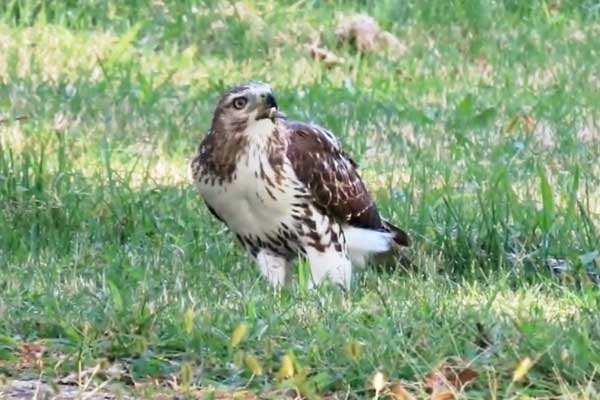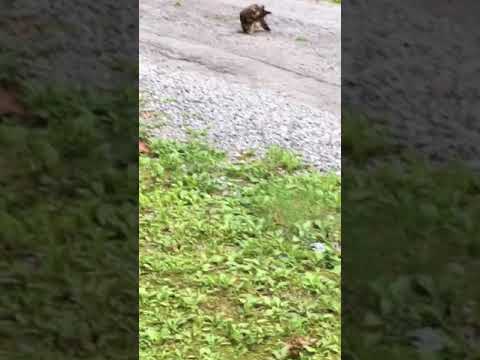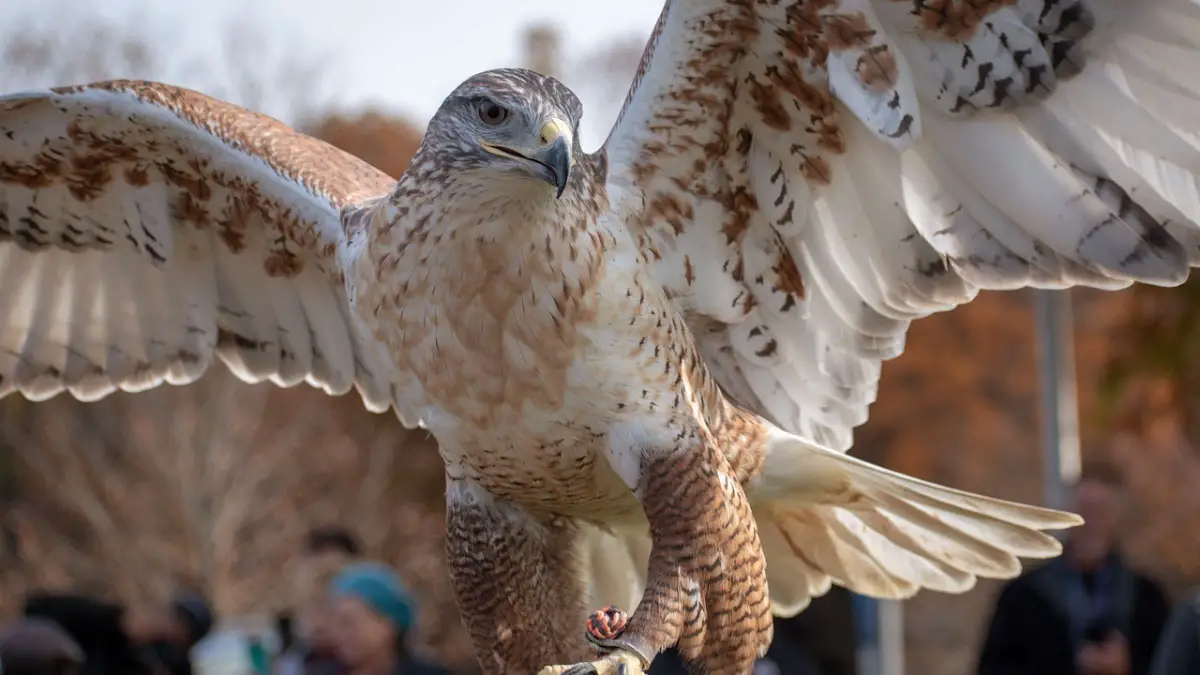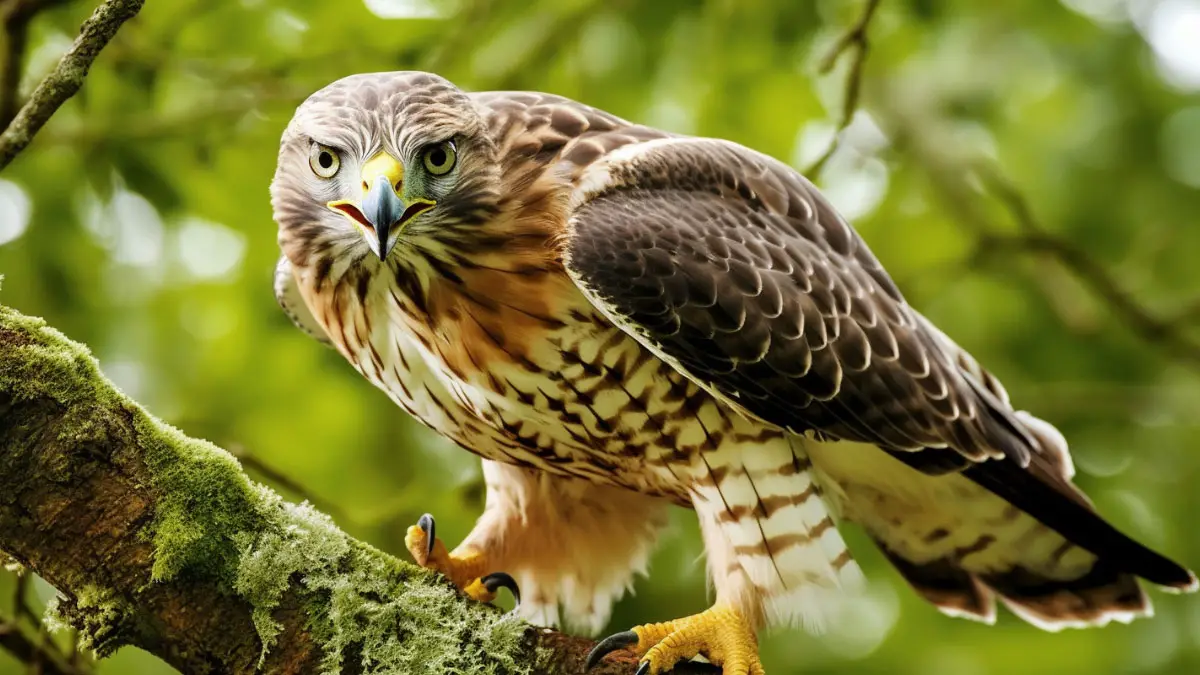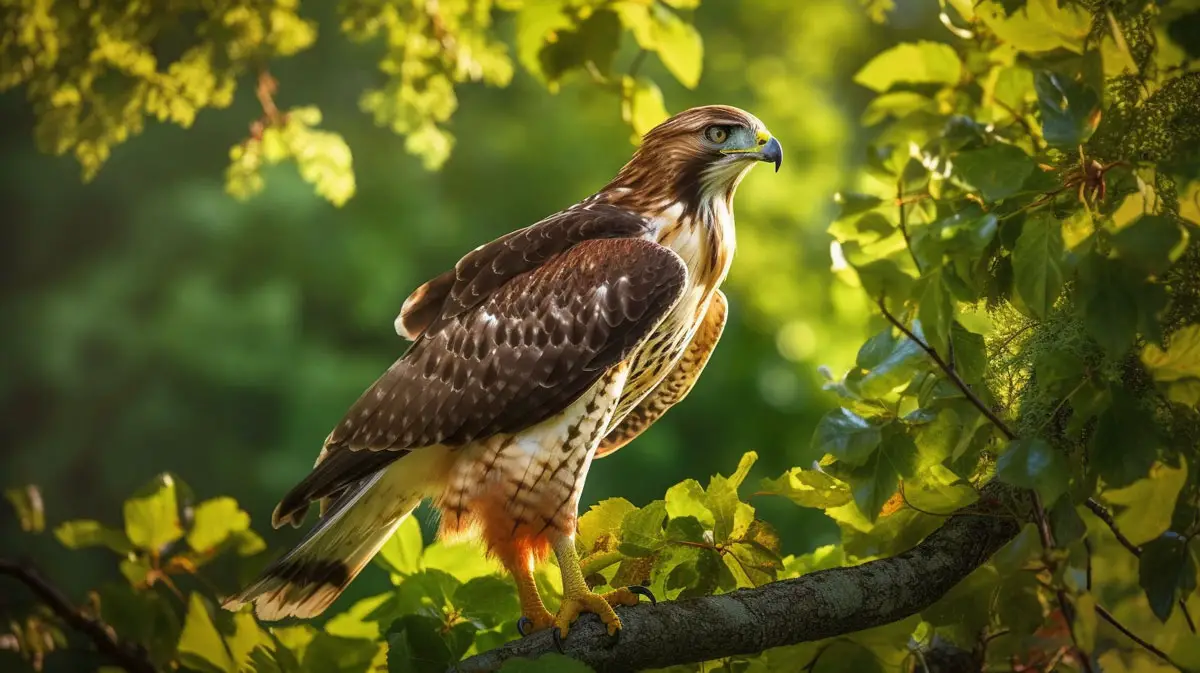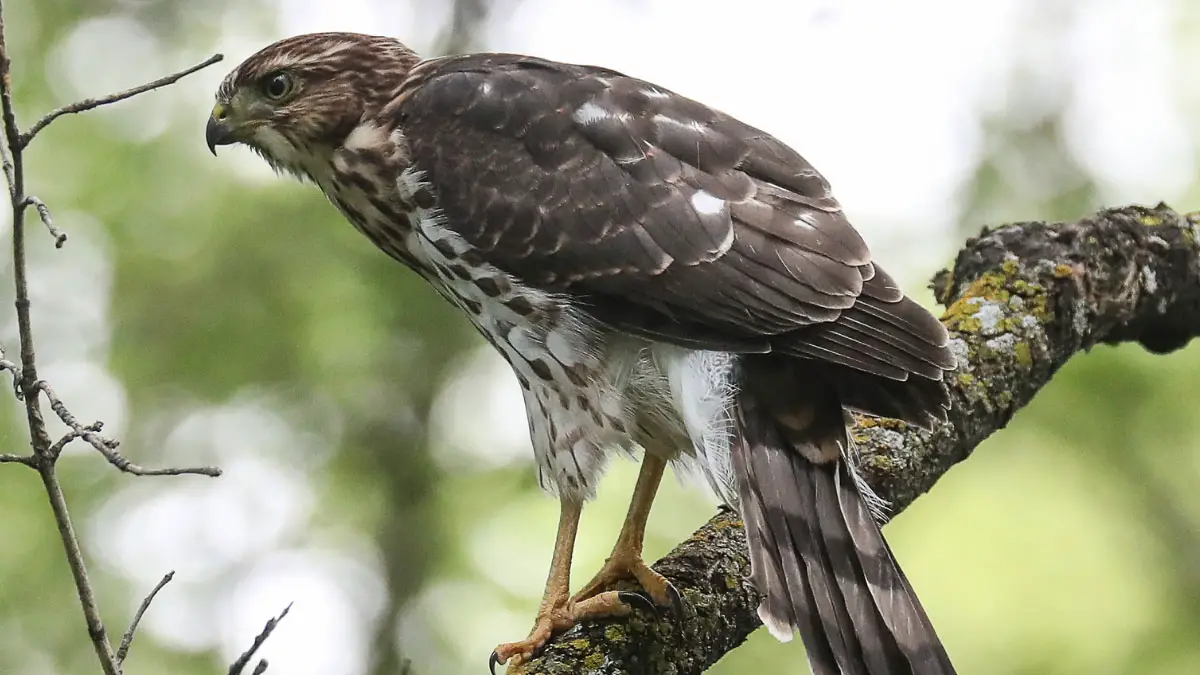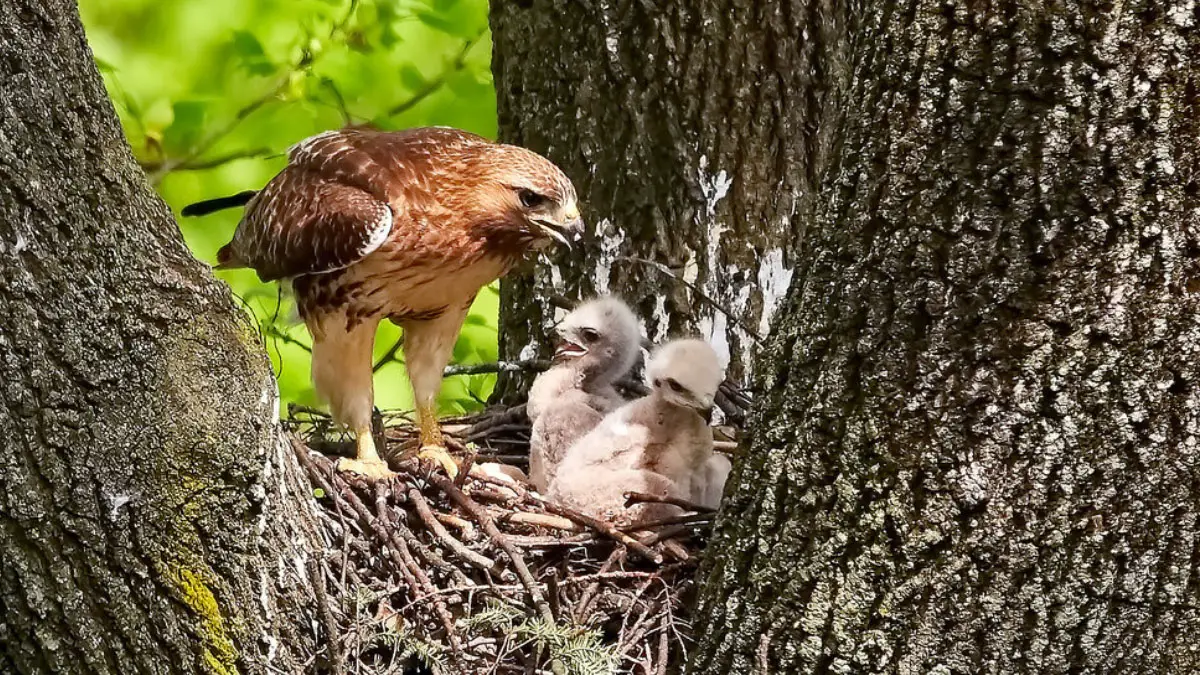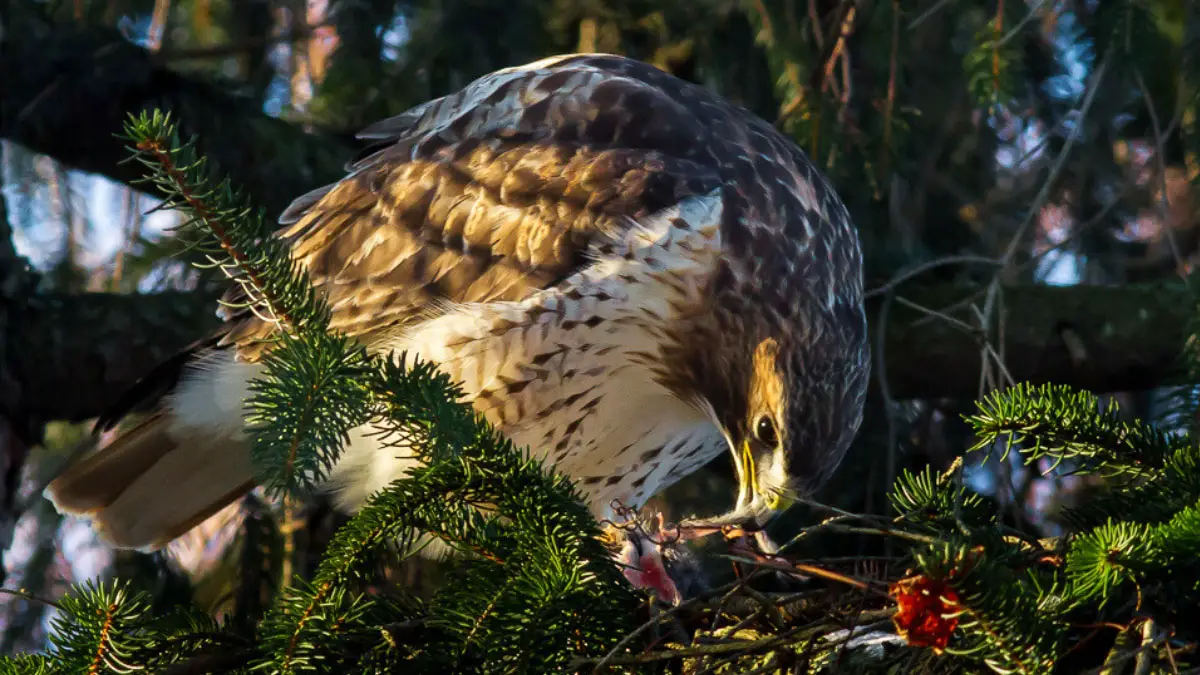Hawks are swift fliers and some of the most powerful woodland birds of prey. Their razor-sharp arched talons help them in hunting both big and small animals. Sometimes even insects.
Do hawks eat grasshoppers? Hawks eat grasshoppers to supplement their typical diet. Mainly, hawks target relatively larger animals like frogs, lizards, ground squirrels, and snakes. However, these raptors are also opportunistic and will not hesitate to feast on a vulnerable insect like a grasshopper.
We will look at their binocular vision in detail and how they can spot a grasshopper from high above. You must be excited to read more about these birds whose visual acuity is eight times that of human beings.
Do Hawks Eat Grasshoppers?
Wild hawks have a very predictable diet, and as said earlier, grasshoppers do not feature in their primary menu. But again, it doesn’t require any effort for a hawk to kill a grasshopper. Although hawks are patient when preying on their victims, in this case, they only need to quickly grab the insect.
Interestingly, they can grab as many insects as they keep moving closer to their main target. Regrettably, for grasshoppers, they are small, and most species live in solitude. Such grasshopper species become even more susceptible to attack by predators like hawks.
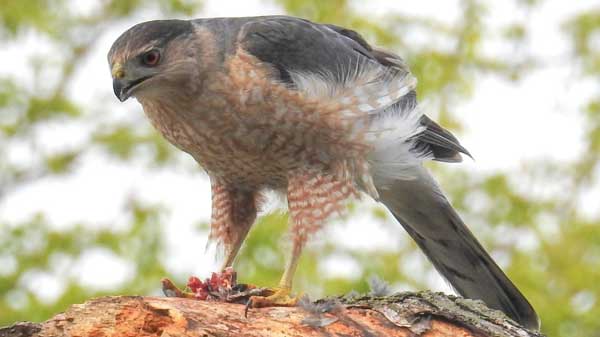
Although we also have the migratory type that flies together, the rest are always at risk. The most they can do for defense is to hop and throw spittle, which wouldn’t scare a hawk. They lose the battle against hawks all the time.
How Does A Hawk Kill Grasshoppers?
You may wonder how some raptors, and especially huge hawks, kill a small insect like a grasshopper. Looking at a red-tailed hawk killing a grasshopper, you will realize that they can use various tactics depending on their prey. In this case, the grasshopper is small and weak, so the hawk devours the insect effortlessly.
Which Hawks Eat Grasshoppers?
The hawk population comes in various species, mostly spread across North America. They include the broad-winged hawks, red-tailed hawks, cooper’s hawk, sharp-shinned hawk, ferruginous hawks, and northern goshawk, among many others. But, they tend to relocate to South America during winter.
Others, like the cooper’s hawks, mainly focus on small animals. You’re likely to find them perching and hovering around the urban areas in search of easy food. But, this doesn’t mean they are the only ones that eat grasshoppers; all hawk species do.
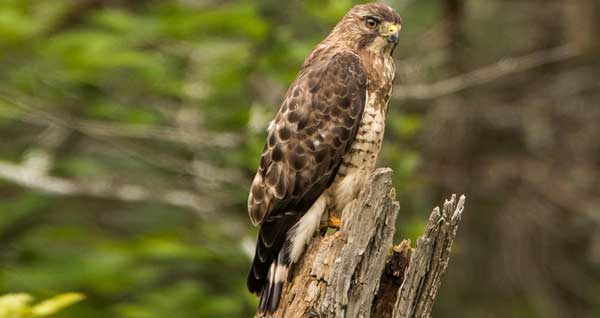
Of all these, we have the Swainson’s Hawks, which are dubbed the “grasshopper hawks.” These are perhaps the most dangerous raptors that hoppers can encounter. The name “grasshopper hawk” is derived from William Swainson, who discovered their traits, and also from the character of feasting on grasshoppers and locusts.
Swainson’s hawks can eat insects for three-quarters of a year, with one raptor eating about 100 hoppers daily. These birds are so strategic that they move around open fields or agricultural land in search of prey. They even catch flying insects, leave alone the hopping ones.
Grasshoppers’ Behavior That Exposes Them to Attack By Hawks
Hawks are typical carnivores, so they feed on meat entirely. That’s why we said they do not primarily prey on grasshoppers but eat them because they’re available. Now that grasshoppers are never the main target, what makes them fall prey to such ruthless birds of prey with a smart hunting strategy?
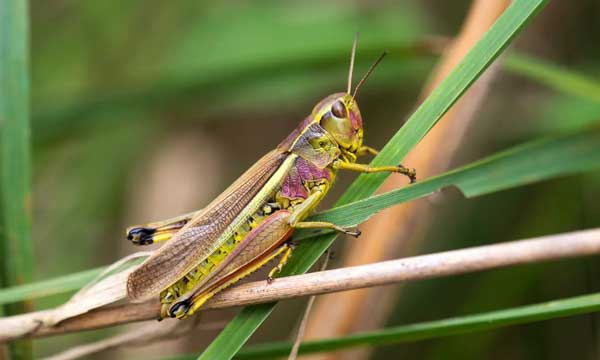
They do not build habitats
Most animals build their own nesting habitat, save for grasshoppers. Like, the hawks and the entire bird population build nests, which go a long way in reducing the predation risk. Usually, grasshoppers, inhabit natural habitation but have none of their own.
The hawks, on the other hand, have sharp eyesight, which gives them an advantage over their prey. Given that hawks are stronger, faster, and have better vision, the grasshoppers always end up being on the receiving end. It’s that bad.
They are primary consumers
The grasshoppers’ position in the food chain is a disadvantage to their population. Their primary food source is plants. The hawks, on the other hand, are tertiary consumers. They fall under the same category as the dangerous cat family.
That means the grasshoppers cannot prey on the hawks, but the reverse is applicable. This is nature and one reason why the hawks will continue feeding on grasshoppers. Such types of insects are probably the most disadvantaged.
They live in solitude
As said above, hoppers are primarily solitary insects. They are not like the locusts that reach a point and metamorphose into a stage where they attract each other. If you find hoppers together, most likely, they are out to mate and find breeding grounds.
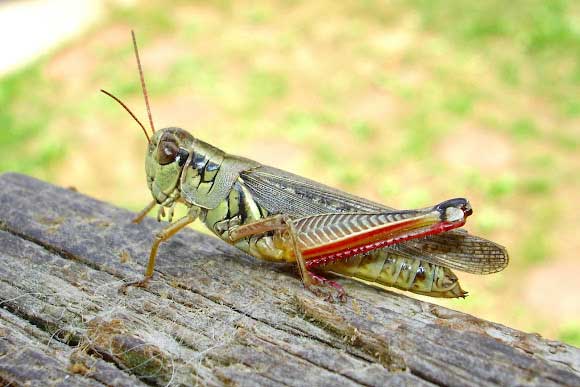
In their lonesome nature, these insects become very easy to prey on. A hawk can easily pick several because they cannot resist. If they moved like a swarm, perhaps it would deter their predators from striking.
Poor Mobility Traits
Grasshoppers can walk, jump, and some others can fly. Their rear legs are designed to propel the body by jumping. But, they cannot jump very high or move faster than the hawks. This is a trait that has continually rendered them vulnerable to most of their predators.
Also, most grasshopper species are not able to move when it’s cold. That’s why people seeking to rear them are advised to catch them in the morning just after sunrise. You don’t want to imagine what happens when a hawk spots one or several, especially in winter when their survival is unlikely.
Related Questions
We cannot exhaust everything regarding the hawks preying on grasshoppers despite being a passive-oppressive relationship. Below, we will address some concerns we feel you may still be having.
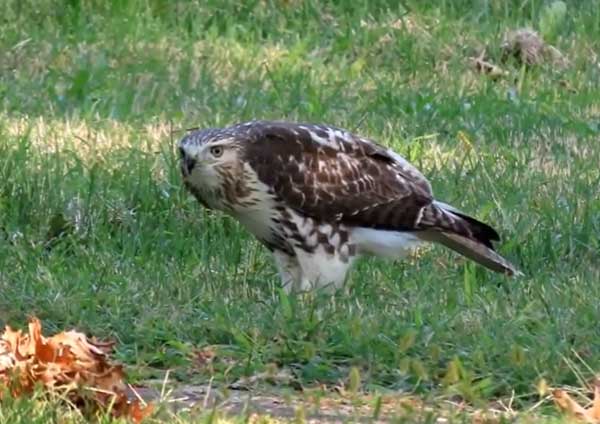
Grasshoppers are majorly herbivores, so they eat grasses and plants. You may have seen the damage they do in agricultural fields when they invade. However, there are also many grasshopper species, and some have been reported to scavenge and prey on other small insects. But they cannot be considered insect prey.
Most, including the red-shouldered hawk, have sharp eyesight. As such, they will likely spot the grasshoppers, despite their effort to camouflage. But, they are likely to catch more grasshoppers if they are in open fields with nowhere to hide.
Hawks have their main type of food being meat. When their prey is small, like grasshoppers and other small insects, they eat several of them daily. However, if they are lucky to catch or rummage around and find a big animal or animal carcass, they may take between one and three days.
Final Words
Hawks eat just about anything. It doesn’t matter whether it is a fresh kill or dead animals from wherever. Also, sometimes they fly searching for any ready source of food, especially when there is nothing much for them to eat. In such a case, hawks will not spare any insect, and that’s where the grasshoppers’ misfortunes begin.
But, if full, a hawk may bypass a grasshopper. But again, even the biggest grasshopper would not soothe a hungry hawk, so it may still pounce on it. Ideally, grasshoppers will never be safe in the presence of hawks.
Do you want to know if hawks eat worms or mice? Read our articles about it to learn more.
